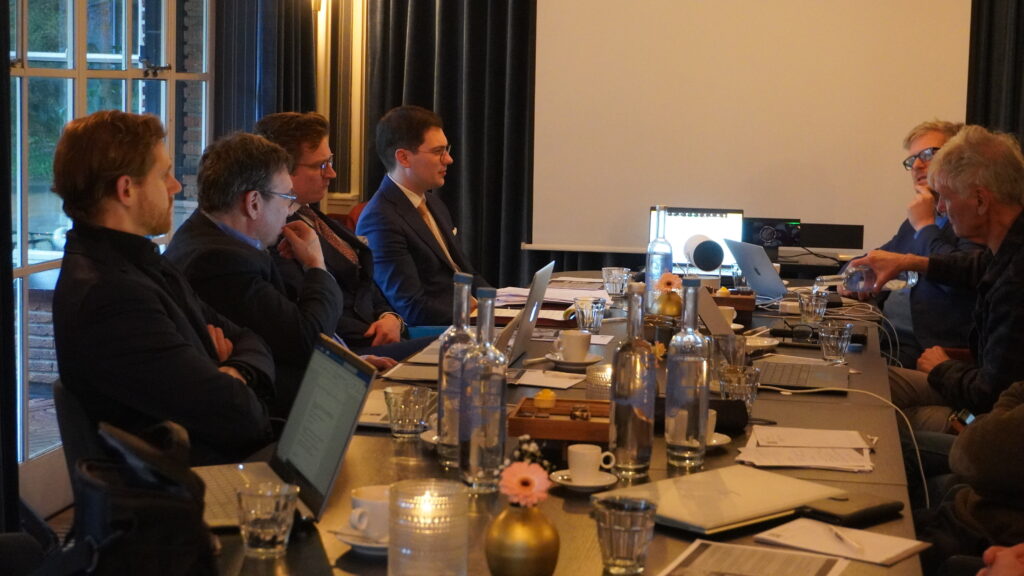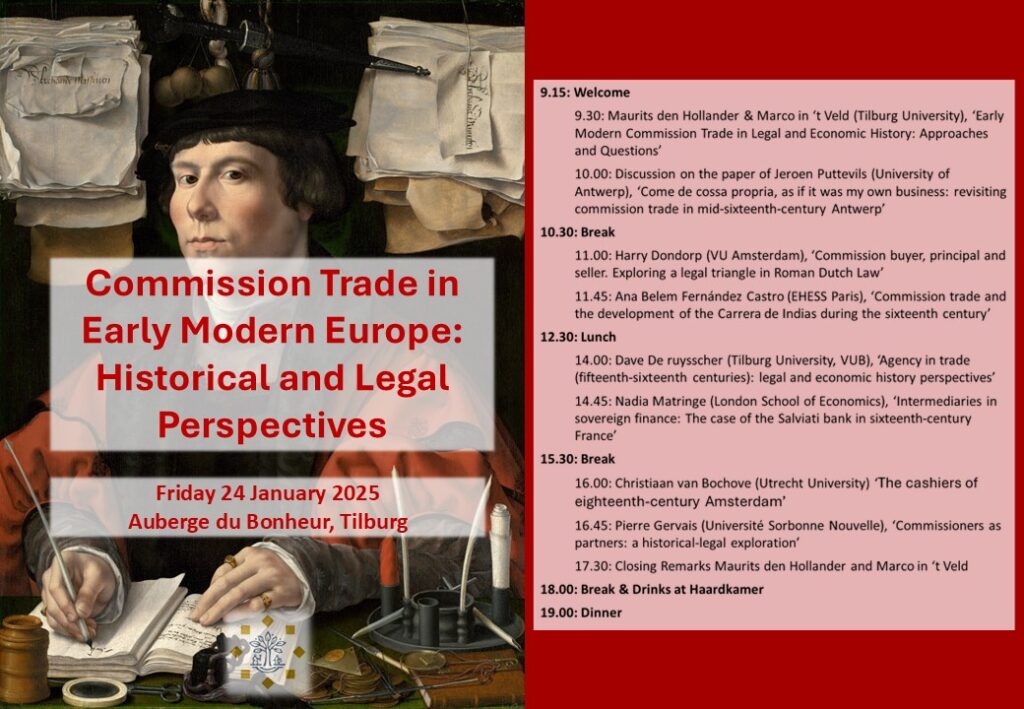Friday, 24th of January 2025, Maurits den Hollander and Marco in ‘t Veld organised a specialised workshop as a kick-off of their combined research project. The aim of the workshop was to explore the historical and legal dimensions of commission trade in early modern Europe. This much-neglected area of study offers rich insights into the interplay between legal frameworks, economic practices, and the evolution of economic institutions during a transformative era of European history.
The workshop gathered a select group of experts from various disciplines, discussing questions regarding the definition of commission trade, the legal categories and mechanisms governing commission agency, and the role of commission trade in shaping modern economic systems.
Challenges in Defining Commission Trade
The discussions revealed the difficulty in delineating commission trade from other forms of agency, such as factoring and even brokerage. Historical actors demonstrated a remarkable creativity in tailoring agency arrangements to specific commercial needs, without accordingly customising the contemporary terminology. Therefore, the early modern commercial practices were often fluid, transcending the legal categories. For this reason the organisers, mostly on the basis of early modern practices in Amsterdam, proposed a relatively broad definition comprising both factoring and brokerage. Dave De ruysscher, however, contributed a compelling analysis of agents in sixteenth-century Antwerp, drawing on both economic and legal-historical perspectives. He distinguishes several appearances of agency: ‘simple’ messengers (no margin of appreciation, no stake in the principal’s business), the ‘recommended’ messenger or commis (sells the goods of the principal with limited margin of appreciation, percentage of stake in business), the trusted agent or facteur (buys the goods for his principal, can perform acts that are not specifically asked for), and the partner or employee (tasked with both buying and selling, shares in the profit).

Agency, Law, and Institutions
A recurrent theme in the workshop was the relation between economic practices and the legal terminology, often stemming from Roman law. Harry Dondorp did an excellent job in deconstructing economic practices into the Latin categories of the ius commune, such as the institor. He also illustrated the complexity of the practice of promising for others with the different formulations used in the subscription books of the Dutch East India Company (VOC) – a very novel approach to this much-studied source.
Ana Belem Fernandez Castro shed light on the institutional underpinnings of the sixteenth-century factoria in the Spanish Americas. Her research revealed how strong royal institutional support counterbalanced the likelihood of the agent’s cheating in a transatlantic context. On the other hand, Nadia Matringe analysed the large-scale credit operations of the Lyons Salviati bank branch in financing the French court. In the most delicate international political context of the Italian Wars (1494-1559), the Salviati succeeded in operating as commission agents of the French king.
Agency and Price Setting
The economic dimensions of commission trade were further explored through the lens of price setting. Pierre Gervais challenged the simplistic notion of price as a result of supply and demand, emphasising instead the multifaceted interplay of information flows and product quality assessment. He stressed the indispensability of information advantages or product knowledge of the agents managing complexity within commercial chains. Christiaan van Bochove presented his new project on the Amsterdam Wisselbank cashiers, as examples of commission agents in coins.
Conclusions
The workshop demonstrated that commission trade was not a monolithic concept but a highly adaptable practice shaped by its often complex historical context. It highlighted the difficulty in reaching a satisfactory definition that includes both commercial creativity and legal dogmatics. However, it also reaffirms the importance of an interdisciplinary and archive-based approach, which will be particularly present in the contributions of the upcoming edited volume that will be the result of this workshop.


dr. Marco in ‘t Veld
Author
